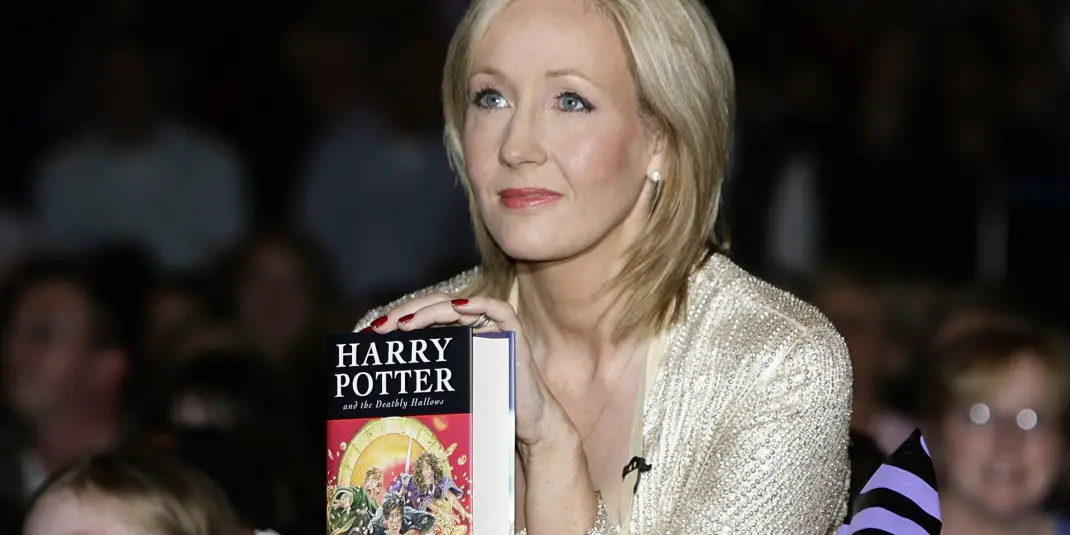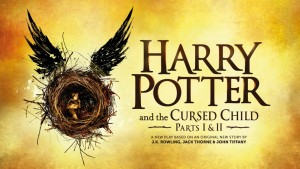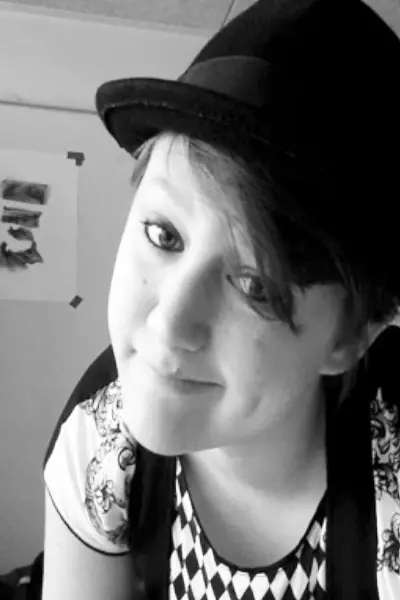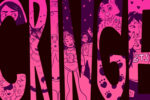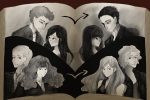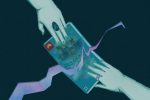Finding Rowling in “The Cursed Child”
The 8th installment of the story, a play premiering soon in London, has drawn ire from fans internationally. As it should have.
By Shiloh McKinnon, Reed
This article contains spoilers for “The Cursed Child.” Read at your own discretion
June 10th, 2015: The Daily Beast publishes an article with a very detailed synopsis of the plot of “The Cursed Child,” J.K. Rowling’s newest installment in the Harry Potter Universe.
The supposed spoilers, include, among other things, the origin of Voldemort’s lovechild, Harry’s scar hurting, a forbidden friendship between a Potter and a Malfoy, and more time traveling than any play should have to keep track of.
There’s been a lot of discussion about whether or not these spoilers are a hoax, especially because people just can’t believe that J.K. Rowling would write what seems like such a bad story. I think she can, and that there’s actually quite a bit of evidence supporting the idea that “The Cursed Child” is exactly the sort of thing J.K. Rowling would write to try and revive the Harry Potter Universe.
The Set-Up
In the years since the final book was released, if there’s one thing the diverse and often highly opinionated Harry Potter fandom can agree on, it’s that they didn’t appreciate the epilogue of the 7th book. Mocking Albus Severus’ name became a meme, and some people argued that by ending the series with another generation at Platform 9¾, the epilogue implies stagnation with regards to the Wizarding World and the problems that the seven-book series pointed toward. From a world-building standpoint, the ending is underwhelming at best.
With all that in mind then, it seems surprising that J.K. Rowling’s newest project would take place after the infamous epilogue. And yet, “The Cursed Child” follows Albus Severus as he embarks on his first year of Hogwarts, exactly like his father before him.
The typical Urban Fantasy approach at this point would be to make Albus Severus the subject of a world-ending prophecy, and force him to learn both compassion and bravery at school in order to prepare for his future.
Except…
Harry Potter already did that.
In the 7th and final book of the series, Harry Potter beat the literal incarnation of evil.
In the book, Tom Riddle’s body lies on the ground of Hogwarts “with mundane finality.”
Though there’s potential for a “he isn’t dead if there’s no body” situation in the movie, the books make it abundantly clear that Voldemort is gone. Bringing him back at this point would be like if J.R.R Tolkein wrote a sequel series to Lord of the Rings where Sauron reappears after only a twenty years absence.
So where does that leave J.K. Rowling? The “Harry Potter” series has been built around Harry and Voldemort, without Voldemort, what is there for Harry Potter to do? He’s done with Hogwarts, he’s achieved his dream of becoming an Auror, he’s got a hot wife, and the entire wizarding community respects him. There’s nothing more for a fantasy novel to do with him. The prophecy that governed Harry Potter’s life seems to be true about the series as well as the character: “neither can live while the other survives.”
So Rowling can’t write another “Harry Potter,” but that should be fine, right? This is a play after all, which is a completely different medium. It should be no sweat for such a famous author to write a short and clever piece about a young boy trying to distance and differentiate himself from his famous father’s legacy.
But that’s not what the play is about.
If you’ve read any of the Harry Potter books, you’ve probably already guessed that “The Cursed Child” isn’t a poignant, yet heartwarming, coming of age tale. Rowling did a great job of creating an endurable fantasy universe, but interpersonal relationships and deep dialogue isn’t really her strong suit. Perhaps that’s why I wasn’t surprised to see that Voldemort had in fact, showed up to be the villain of “The Cursed Child.”
If an author isn’t going to focus on character, than they have to have a compelling plot. I’d argue that theatre is a medium more suited to character than plot, but that’s an argument for another day. What we need to understand here and now is that J.K. Rowling couldn’t write a character driven play, and so she decided to focus on plot instead. And by focusing on plot, she ended up with the monstrosity that is “The Cursed Child.”
I’m not going to go into detail about what allegedly happens in the play, if you want the full story, you can check out this article, but believe me when I tell you that there’s a reason people on tumblr are comparing the canon plot to that of the infamous fanfic My Immortal.
A short summary though, is that Albus Severus Potter, Harry’s youngest child, gets sorted into Slytherin when he goes to Hogwarts. He quickly becomes friends with Scorpius Malfoy, which his father intensely disapproves of. Meanwhile, Amos Diggory, Cedric’s dad, is demanding Harry use a Time-Turner to save his son. Harry denies he has the device, so Albus Severus and Scorpius steal it and go back in time themselves.
As they mess with the timeline, the create worse and worse futures, and going back doesn’t help fix anything. Eventually, the two get help from Cedric’s niece, Delphie. She convinces Albus Severus to let her destroy the Time-Turner. When he gives it to her, she reveals herself to be Voldemort’s daughter and goes back in time to go kill baby Harry. Albus Severus and his father have to team up in order to stop her and save Harry Potter, and therefore the world.
So let’s take a look at some of the biggest WTF moments about that.
Harry is a terrible father
Harry’s terrible Aunt and Uncle are a huge part of his character. He grew up in a loveless and abusive household, and it’s clear that that affects him throughout the series. He fixates on his parents, the good family replaced by the terrible one, he finds a home in Hogwarts and he’s shocked every time the Weasleys show him kindness. Throughout his school years, he struggles with issues of self-worth and overcompensation.
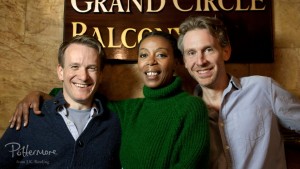
Okay, so given that background, I suppose it makes sense that Rowling would want to have Albus Severus have some issues with his family too. After all, her characters thrive under stress and pressure from all sides, and if you have a present and supportive family just a letter away, it makes it difficult to sustain that sort of drama.
And why choose Harry to be the egregiously out-of-character bad dad? Well, because you can then have moments of him learning too! Rowling even managed to bring Dumbledore back to briefly give Harry parenting advice. Given the way Rowling handles mirrors and smoke signals and Dumbledore’s advice in the books, that’s not actually that surprising, even if it is incredibly frustrating to read.
Cedric’s Death
Cedric Diggory was a martyr. Harry Potter may be the main character of the series, but Cedric’s death is the one that the students rally behind, and Cedric’s death is the one that prompts Dumbledore to deliver the famous line, “Cedric Diggory was killed by Lord Voldemort.” And it’s the senselessness of that death that gives it such a profound effect. Voldemort himself admits that the boy is just a “spare”; Harry is the one that he wants.
It’s understandable then, that an author searching for sources of drama in her world would choose to focus on Cedric. There must be people who are upset about his senseless death, right? What about his father?
To have Amos Diggory, Cedric’s father, demand Harry go back in time to fix his son’s death makes a certain amount of sense, especially given Cedric’s importance in both Harry’s life and the fight against Voldemort. He is, after all, the first victim of Voldemort’s return. It makes sense that Rowling would fixate on his death, and also that changing it changes the future.
Voldemort Day
So the thing about the horrifying alternate future caused by Cedric’s survival is that it actually makes a lot of sense. No really. It’s a powerful move from an authorial standpoint. Sure, it takes a bit of dot connecting to figure out exactly how Cedric’s survival leads to Dystopian Hogwarts, but my guess is that it has something to do with Cedric’s function as a martyr.
Without his death, the students at Hogwarts, and possibly even Harry himself, don’t have the motivation to continue to fight Voldemort.
When they get beaten down, they aren’t able to get back up.
So showing that alternate future is reasonable. What makes it feel like a parody is the Blood Ball, which has all of the girls in school scrambling to get Scorpious Malfoy as their date. What went from a chilling, if heavy handed, Nazi parallel with the forced salute of “for Voldemort and Valor,” just became a cheesy pre-teen drama.
Actually, that pretty accurately echoes the plot of “Harry Potter and the Half-Blood Prince.” Looked at that way, it’s not hard to see how Rowling would write that.
Delphie
And now we finally talk about the villain of the whole show, Delphie, the illegitimate child of Voldemort and Bellatrix Lestrange.
…
It sounds like something straight out of fanfiction, but Delphie seriously is the seductress, the loyal follower, and the Villain’s Daughter, all rolled up into one overdone ball of tropes.
Well, we’ve identified that the entire plot seems overdone, possibly a side-effect of no editors daring to contradict J.K. Rowling, possibly the result of her own anxieties about the series, but that still seems like a little much.
Until we think about what Rowling has to achieve with this play. She needs a villain, and while the nebulous bad-future Hogwarts starts to fill that role, it’s no He-Who-Must-Not-Be-Named. So how does Rowling, who has distinguished herself by writing this generation’s archetypal battle of Good vs. Evil, support that legacy? Why, by bringing back that evil. Or, since this is the 2nd generation, bringing in that evil’s daughter. It’s the easiest way to re-involve the Dark Lord after all.


